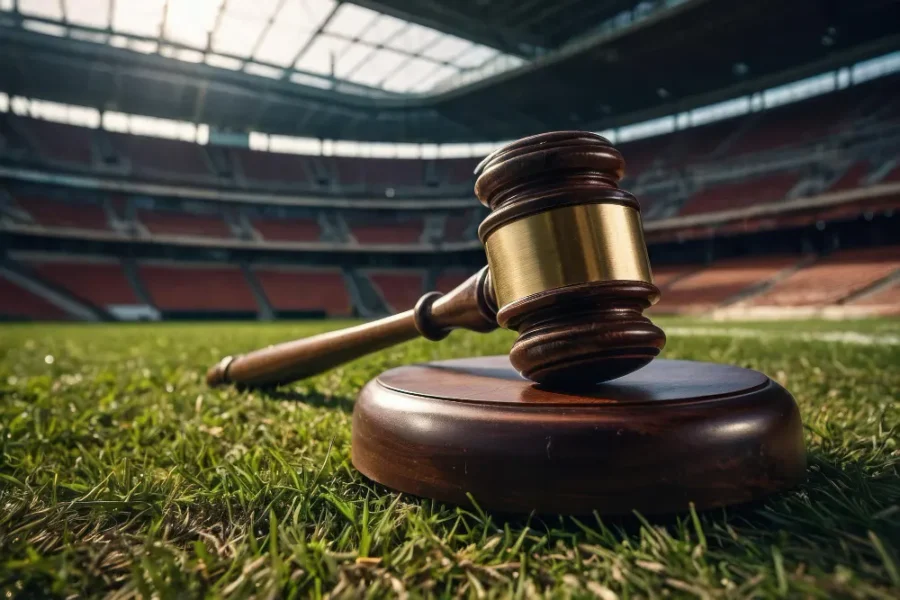Sports have long been an integral part of Indian culture, evolving from traditional games like kabaddi and kho-kho to a robust ecosystem that includes cricket, hockey, football, and other global sports. As the sector expands in scope and commercial value, the need for legal frameworks to regulate and oversee sports activities has become increasingly apparent. In India, the development of sports laws addresses issues like governance, player rights, anti-doping regulations, contract disputes, and the prevention of unethical practices such as match-fixing.
The Legal Framework Governing Sports in India
India does not have comprehensive legislation dedicated solely to sports. Instead, the sector is regulated by a combination of general laws, sector-specific acts, and policies. Some of the primary components of sports law in India include:
- National Sports Policy, 2001
The National Sports Policy, 2001, is the cornerstone of India’s sports governance. It emphasizes the need to develop sports infrastructure, provide access to training facilities, and promote sports at grassroots levels. The policy also seeks to ensure transparency and accountability in sports organizations.
- Sports Authority of India (SAI)
SAI is a key institution tasked with nurturing talent, managing sports infrastructure, and conducting coaching programs. It operates under the Ministry of Youth Affairs and Sports, aiming to elevate India’s performance in international sports.
- The Prevention of Sports Fraud Bill, 2013 (Proposed)
Although yet to be enacted, this bill seeks to address issues such as match-fixing, betting, and other fraudulent practices in sports. It proposes stringent penalties for individuals or entities involved in manipulating the outcome of sports events.
- The National Anti-Doping Agency (NADA)
Established in 2005, NADA implements anti-doping measures to ensure fair play in sports. It conducts random testing, enforces bans on prohibited substances, and creates awareness about the ethical aspects of competition.
- The Indian Penal Code (IPC)
Sections of the IPC, such as those dealing with cheating, criminal breach of trust, and criminal conspiracy, are often invoked in cases of match-fixing, fraud, and corruption in sports.
- Labor and Contract Laws
Employment contracts for players, coaches, and support staff are governed by the Indian Contract Act, 1872, ensuring adherence to terms such as remuneration, performance obligations, and termination clauses. Disputes are typically resolved through arbitration or legal proceedings.
- Judicial Precedents
Indian courts have played a crucial role in shaping sports jurisprudence. Landmark cases, such as the Supreme Court’s intervention in the Board of Control for Cricket in India (BCCI) reforms following the Lodha Committee recommendations, underscore the judiciary’s active involvement in ensuring accountability in sports administration.
Key Challenges in Indian Sports Law
- Lack of Comprehensive Legislation
The absence of a unified sports law leads to inconsistencies and ambiguities in governance. Different sports bodies operate under their own rules, often lacking uniform standards for management and accountability.
- Corruption and Match-Fixing
Incidents of match-fixing and betting scandals have tarnished the reputation of Indian sports. While laws exist to curb such practices, enforcement remains a significant challenge due to the clandestine nature of these activities.
- Player Rights and Welfare
Athletes in India often face issues related to inadequate contracts, delayed payments, lack of healthcare benefits, and limited post-retirement support. There is a growing need for policies that prioritize the welfare of players.
- Gender Disparity
Women athletes frequently encounter disparities in funding, sponsorship, and media coverage compared to their male counterparts. Legal and policy measures must address gender inequities to foster inclusivity in sports.
- Anti-Doping Enforcement
Despite the efforts of NADA, doping remains a persistent issue. Enhancing testing capabilities and promoting education on banned substances are critical for maintaining the integrity of Indian sports.
Recent Developments in Indian Sports Law
- BCCI Reforms
In 2017, the Supreme Court mandated sweeping reforms in the governance of the BCCI based on the Lodha Committee’s recommendations. These reforms included structural changes, conflict-of-interest guidelines, and enhanced transparency in decision-making.
- Recognition of Esports
In December 2022, the Indian government officially recognized esports as part of multi-sport events under the Ministry of Youth Affairs and Sports. This acknowledgement is expected to create opportunities for players and stakeholders in the growing esports industry.
- Promotion of Grassroots Sports
The Khelo India initiative has been instrumental in identifying and nurturing young talent. It also focuses on building infrastructure and providing financial support to aspiring athletes.
- Gender Equality Initiatives
Organizations and campaigns are increasingly advocating for equal opportunities and pay for women athletes. Prominent examples include initiatives to promote women’s cricket and hockey at the national level.
- Inclusion of Persons with Disabilities
Sports for persons with disabilities have gained momentum, with increased focus on accessibility and participation in events like the Paralympics. Legal measures are being explored to ensure inclusivity and equitable funding.
Implications of Sports Laws in India
Enhanced Governance
Improved regulations and oversight mechanisms have contributed to better governance in sports bodies, promoting transparency and ethical practices
Player Empowerment
Legal frameworks have empowered athletes by safeguarding their rights, ensuring fair contracts, and addressing grievances effectively.
Fair Competition
Anti-doping measures and stricter penalties for fraudulent activities have reinforced the importance of fair play in sports.
Boost to Grassroots Development
Policies aimed at grassroots development have increased participation, particularly among youth and underrepresented communities, ensuring a steady talent pipeline for national and international events.
Economic Growth
The formalization of sports laws has created a conducive environment for investments in sports infrastructure, sponsorships, and broadcasting rights, significantly contributing to the economy.
Conclusion
The intersection of sports and law in India is an evolving domain that reflects the growing importance of the sector. While significant strides have been made in governance, player rights, and anti-corruption measures, challenges such as the lack of a comprehensive sports law and issues related to gender disparity and doping remain. By addressing these gaps and fostering a culture of inclusivity and integrity, India can position itself as a global powerhouse in sports, ensuring the well-being of athletes and the industry’s sustainable growth.
Contributed by Karan Bhalla (Legal Intern)

